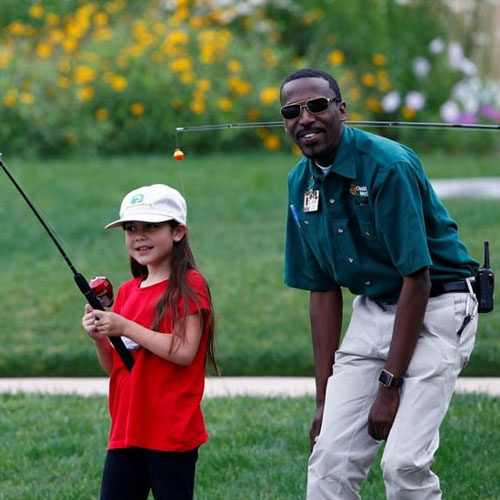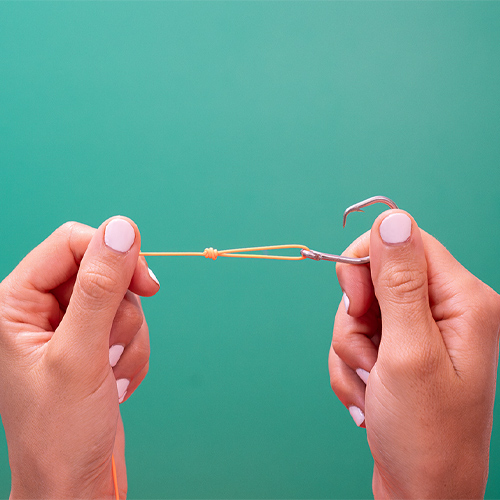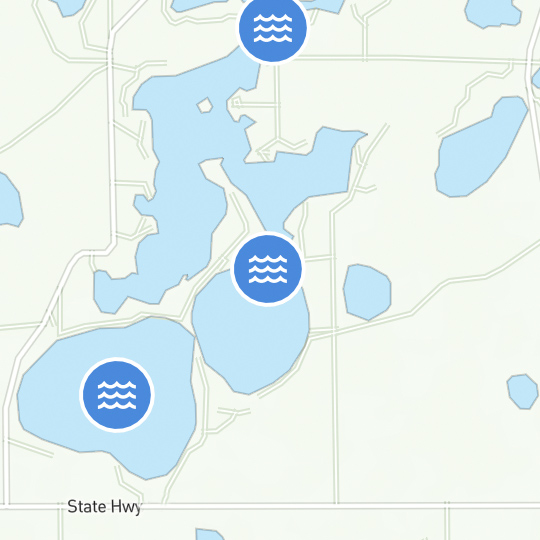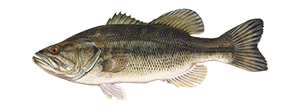Deep Sea Fishing Safety
When fishing in deep offshore waters for big game species like marlin or tuna, deep sea fishing safety should always be top of mind. Consider going with a licensed captain or deep sea fishing expert if you are new to the experience of deep sea or offshore fishing.
Safety First
Safety is a responsibility that every boater and angler should take seriously. Offshore fishing trips can be an exciting challenge due to the size and strength of many deep sea sport fish species. Although, deep sea fishing also means being prepared for extreme conditions.
If you plan to go on a deep sea charter boat, follow your captain's instructions at all times. If you plan to operate your own boat offshore, don't forget to share safety laws and tips with your passengers. This way, you can help ensure that everyone on board has a safe and enjoyable fishing adventure.
Always follow safe boating laws and deep sea fishing safety tips so that the memories you make on the water are positive ones.
Deep Sea Fishing Safety Tips
Safety should come first any time you are out on the water, but it's even more important when you are offshore because conditions can change quickly. Below are a few examples of deep sea fishing safety tips that you should follow.
- Check frequently for weather updates. Offshore conditions can change quickly. Stay alert and aware by monitoring weather data on your marine radio or through satellite data that is transmitted to your boat electronics.
- File a float plan with a marina or responsible family member. A float plan will help provide accurate information about your trip to the U.S. Coast Guard in the event of an emergency.
- Make sure that you and all other anglers or boat passengers know where the safety equipment is stored. Everyone on board should know where and how to access the safety equipment.
- Check all of your boat safety equipment to make sure everything is in working order. Make sure your PFDs or life jackets are in good condition, test any flashlights you have on board, check the expiration dates on your flares and fire extinguishers, remember to test your VHF radio, and follow the manufacturer's instructions for testing your EPIRB.
- Keep your first aid kit in a dry, accessible place. Check your first aid kit after each of your trips to make sure any expired or missing contents are replaced.
- Be sure your clothes and gear are suitable for offshore conditions and type of fishing you plan to do. For example: Bring your rain gear, wear closed toe boat shoes that have traction, put on a hat for protection from the sun, and have an extra jacket along with you.
- Take the time to be sure fishing gear and tackle is safely stowed in locked compartment or below deck when the boat is running. This includes sharp hooks, gaffs, lures, and filet or bait knives.
- Make sure you have extra supplies, such as food and water, on board in the event you are out at sea for longer than intended.
- Learn how to properly use any fishing gear or tackle that you have on board. For example, remember never to grab fishing line or leader when you have a fish on unless you are wearing heavy-duty fishing gloves that have been made for this purpose.
This list only provides a few examples of fishing safety tips to keep in mind when you are offshore fishing. Your best course of action is to sign up for a U.S. Coast Guard recognized boating safety course or request a free vessel safety check in order to be sure that you are following all safety guidelines and have the required deep sea fishing safety equipment on board.
KEEP LEARNING

First Catch Center Trailer Gallery
FCC Trailer Photo Gallery
LEARN MORE

How to Tie a Duncan Knot
Learn to tie a Duncan knot by following these five simple steps. Watch our new video.
LEARN MORE

Welcome to Angler Academy!
No one said you can’t bring fishing inside! There’s lots of fun activities we can do right from home
LEARN MORE


.png?lang=en-US&ext=.png)